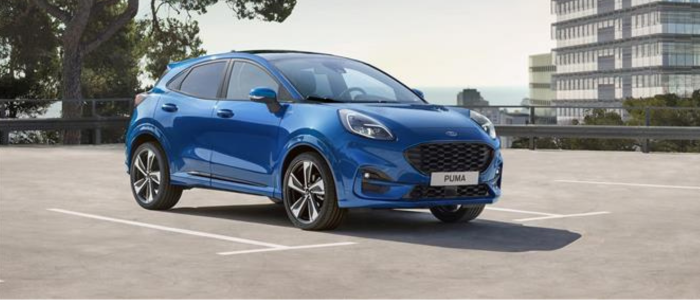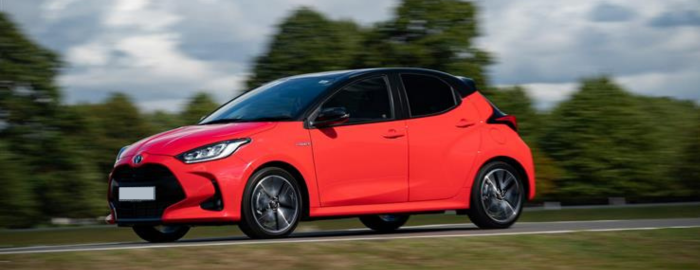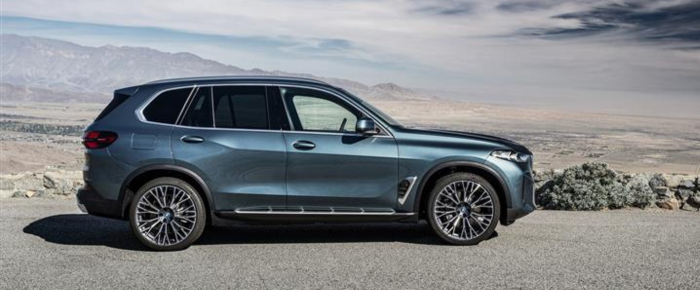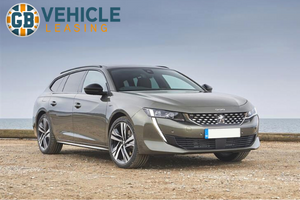Hybrid Car Leasing
If you're looking for a greener form of transport but don't think a full electric car is right for you, then there’s a superb selection of hybrid vehicles available instead. Our selection of hybrid lease deals are a great way to help the environment as well as your wallet.
Contact our hybrid leasing specialists on 0161 667 5338 for more information. We'd be happy to answer any questions you have and talk through the options available to you.
Scroll
Free Nationwide Delivery
We deliver to most places in mainland UK
Road Tax Included
We deliver to most places in mainland UK
Consultative Approach
No pressure selling just honest advice
Hybrid Lease Deals
Special Offer
In Stock

Nissan Juke
View This Deal
Special Offer
In Stock

Hyundai Kona
View This Deal
Special Offer
In Stock

Hyundai Tucson
View This Deal

MG Motor UK MG3
View This Deal

Mazda 2 Hybrid
View This Deal

Honda Jazz
View This Deal

MG Motor UK ZS
View This Deal

Toyota Yaris Cross
View This Deal

Toyota Yaris
View This Deal

Renault Clio
View This Deal

Suzuki Vitara
View This Deal

Dacia Jogger
View This Deal

Toyota C-HR
View This Deal

Renault Captur
View This Deal

Dacia Duster
View This Deal

Nissan Qashqai
View This Deal

Kia Sportage
View This Deal

Lexus LBX
View This Deal

Toyota Corolla
View This Deal

Suzuki S-Cross
View This Deal

Kia Niro
View This Deal

Renault Symbioz
View This Deal

Honda HR-V
View This Deal
Benefits of Hybrid Car Leasing
Here are some of the main benefits of leasing a hybrid car:
Environmentally conscious drivers will be happy to know that hybrid cars are more environmentally friendly than the equivalent petrol or diesel car. This is because they produce fewer emissions and therefore are a greener, cleaner option.
Hybrid cars can offer the driving performance (and experience) of a combustion engine coupled with enhanced economy. For those with urban-style driving conditions, the electric element will assist where there are low speeds.
For company car drivers, a hybrid will offer an improved position on CO2. This will assist when calculating BIK/company car tax exposure.
Hybrid cars can use less fuel to run and therefore are less dependent on fossil fuels. With the rising price of fuel, drivers of hybrid cars can take this as a little win.
Range anxiety isn’t an issue with hybrid cars because they are able to operate using the conventional combustion engine if the electric range is insufficient.
Part Exchange Your Old Vehicle
Need to sell your old vehicle? Part-exchanging eliminates the hassle of selling your old vehicle privately and dealing with potential buyers. Currently, we're one of the very few brokers that will accept a part exchange!
What are the different types of hybrid cars?
Hybrid cars are a type of vehicle that combines traditional petrol-powered engines with electric power. These vehicles have been gaining popularity in recent years due to their excellent fuel efficiency and low environmental impact. There are four different types of hybrid cars on the market today, each with its own unique set of features.
Series hybrid cars
The electric motor drives the wheels in a series hybrid, while the petrol engine powers a generator that generates electricity and charges the battery. The petrol engine is only used to deliver energy to the electric motor, not to push the vehicle forward. This makes series hybrid cars highly efficient and reliable, since the petrol engine does not directly drive the wheels or require any regular fuel input.
Series hybrids can combine the two power sources or drive for short distances solely on battery power. It's because of this that they're particularly effective in stop-and-go city traffic. When the battery runs out or the automobile requires additional power to accelerate, the petrol engine comes in.
Parallel hybrid
The petrol engine and electric motor are coupled in a parallel hybrid, allowing them to work together to power the vehicle. The petrol engine does the majority of the work, while the electric motor assists.
The key distinction from series hybrids is that the petrol engine drives the vehicle rather than generating electricity. This type is the most affordable to manufacture and purchase, however it is less fuel efficient than 'full' series hybrids.
Series-parallel hybrid
These are a blend of the first two types. The car can be driven solely on fuel, solely on electricity, or a combination of both. Like a series hybrid, the petrol engine also charges the battery.
In typical driving, the petrol engine is the major source of power, with the electric motor providing a boost when necessary, such as during overtaking. In slow-moving city traffic, though, the battery takes control. As a result, series-parallel hybrids can run entirely on electricity, but only at lower speeds.
Plug-in hybrid cars
A plug-in hybrid car, often known as a PHEV (plug-in hybrid electric vehicle), is a modern vehicle that is more similar to an electric vehicle. The battery can be charged either by the petrol engine or by plugging it into an external power source such as a charging station. Because the batteries in PHEVs are typically much larger than those in normal hybrids, they can go further on battery power alone.
Hybrid cars are powered by a combination of petrol and electricity. This means they use less fuel than regular petrol cars, making them more fuel efficient. This also means that they emit fewer greenhouse gases, lowering car taxes and aiding the environment. However, real-world fuel efficiency, emissions, and miles per gallon (MPG) will vary depending on the hybrid type, as well as speed and driving style.
Other technologies, such as Continuously Variable Transmission, are also used to improve fuel efficiency in the cars (CTV). This optimises engine speeds and gear shifts for maximum economy automatically.
How To Charge A Hybrid Car
There are a few different methods for charging a hybrid car, depending on your situation and preferences. One option is to plug the vehicle into a standard wall outlet using a charging cord, which is relatively straightforward and requires no additional equipment or special settings. This method typically takes several hours to fully charge the car and may not be suitable for drivers who are frequently on the go or in need of an immediate top-up.
Another option is to use a public charging station, if one is available in your area. Typically, these stations use higher-voltage direct current (DC) chargers that allow you to charge your car in less time than standard outlets do. However, they can also be more expensive and require specialized equipment such as adapters or cables. Ultimately, the best way to charge a hybrid car will depend on your unique needs and situation, but it is important to choose a method that fits with your lifestyle and helps you get the most out of this innovative mode of transportation.
Find Your Nearest Hybrid Car Charge Point
Find your nearest public charging point using this map.
Hybrid Cars FAQs
Curious about hybrid cars? We've got you covered with our comprehensive Hybrid Cars FAQs. Whether you're considering opting a hybrid or simply want to expand your knowledge, we provide answers to common questions. See below for more information about hybrid cars or contact our hybrid specialists on 0161 667 5338
What is a hybrid car?
A hybrid car utilises both a conventional combustion engine (petrol or diesel) and an electric motor. The electric element can work in conjunction with the combustion element to provide additional power or, if required, operate on the electric element independently for a very short period of time (covering low speeds). Hybrid cars have been available for a number of years. Popular examples of hybrid cars include the Toyota Rav4, Kia Niro (hybrid) and Lexus UX.
What is a Mild Hybrid (MHEV)?
It's a low-cost, relatively simple set of components that helps petrol and diesel cars use less fuel and emit less CO2. It usually comprises of a small electric generator that replaces the starter motor and alternator (the mechanism that keeps the 12-volt battery charged), as well as a small lithium ion battery.
The majority of mild hybrids are powered by a 48-volt electrical system, which is higher than typical 12V systems. This allows the engine to function more efficiently by powering components that would have previously been powered by the engine.
How do hybrid cars work?
Hybrid cars work by combining a gasoline engine with an electric motor. The electric motor is powered by a battery that can be charged by the gasoline engine or by using regenerative braking.
The hybrid car technology is more efficient than traditional cars and offers better fuel efficiency, as well as lower emissions. Hybrid cars are becoming popular because they offer better fuel efficiency and lower emissions than their traditional counterparts. They also require less maintenance and are cheaper to maintain in the long run.
What is the difference between an electric and a hybrid car?
They mainly differ in the way the car is powered. Electric cars are powered by electricity and need to be plugged into a charge point in order to be charged and therefore able to move. Whereas, hybrid cars use both a conventional combustion engine (petrol or diesel) and an electric motor. Unlike electric cars, hybrid cars are not restricted by an electric range. Although, as hybrids use a combustion engine, drivers needs to ensure there is sufficient fuel in exactly the same way as any other standard combustion engine vehicle.
Do I need to charge a hybrid car?
If you opt for a Hybrid Electric Vehicle (HEV) or a Mild Hybrid (MHEV), then the answer is no. The battery charges as the car moves or brakes and therefore a hybrid does not require charging via an external charging point. As such, the full system will operate effectively when the car is regularly accelerating and braking.
Parallel hybrids are unique in that they solely charge the battery by capturing and converting excess energy to electricity. Excess energy is saved in the battery for later use, such as regenerative braking, instead of being wasted when the car is idle or decelerating.
Are hybrid cars better for the environment?
As a hybrid car uses an electric motor and so emits lower CO2 emissions, it is generally better for the environment than an equivalent petrol or diesel car. However, a hybrid car will not be able to offer pure electric motoring for more than a mile or so. Therefore, environmentally-minded customers might prefer to opt for a pure electric car instead as this is better for the environment.
How long do hybrid batteries last?
Hybrid batteries are expected to last up to 20 years, although this does depend on usage. Extended use with regular charging will inevitably reduce its capacity over time. However, for peace of mind, most manufacturers will supply a battery guarantee of anywhere between 5-8 years or 100,000-125,000 miles (whichever lands sooner).
Can you drive a hybrid car without fuel?
At first glance, it may seem impossible to drive a hybrid car without fuel. After all, hybrid cars are designed to run on both electricity and gas, and electric vehicles require a constant supply of energy in order to keep running. However, as many drivers have discovered, it is indeed possible to drive a hybrid car without fuel. One simple way to do this is by charging the vehicle's battery before your trip so that it contains some amount of energy when you get behind the wheel. Alternatively, you can harness the power of solar energy by connecting your car to an electrical device called a solar panel. Either way, there are several ways that you can drive a hybrid car without relying on gas or other fuels. So, if you're looking for an eco-friendly and cost-effective way to get around town, a hybrid car just might be the perfect choice for you!
What is a Plug-In Hybrid Car?
Around 2012 a new variant of hybrid was introduced – the PHEV. This utilises both a conventional combustion engine (petrol or diesel) and an electric motor. Using similar technology to the hybrid, the PHEV offers bigger battery capacity (but which is smaller than a pure electric vehicle). This allows the car to be driven for a modest amount of time on its electric element – 15 to 30 miles depending on the make and model. Popular examples of a PHEV include the BMW 330e, Mitsubishi Outlander (PHEV) and Volvo XC60 Hybrid.
What is the difference between a hybrid and plug-in hybrid car?
The main difference between a hybrid and a plug-in hybrid car lies in their charging capabilities and electric range. Hybrid and Plug-In Hybrids differ as the latter can be plugged in to recharge, whereas the HEV recharges via regenerative braking. Also, due to battery improvements, the Plug-In Hybrid Car can travel at higher speeds (and for longer) on the electric element in comparison to a hybrid option.
How long does it take to charge a PHEV?
This will depend on the capacity of the car/battery and the power output of your charging unit. For drivers using a standard household plug, this will take approximately 5-6 hours. For those with a dedicated home charging unit, this will take 3-4 hours depending on the output (there is a choice of between a 3.6KW (16Amp) or a 7.2KW (32Amp) option). There are a growing volume of fast charging points and rapid charging units which could do this in less than 30 minutes.
Does a plug-In hybrid car need oil?
Yes, plug-in hybrid cars still require oil, although they may require it less frequently compared to traditional internal combustion engine (ICE) vehicles. While the electric motor of a plug-in hybrid provides some power source, the conventional combustion engine still needs oil for lubrication and cooling purposes. The oil in a plug-in hybrid car is responsible for maintaining the engine's performance and longevity. Checking your engine oil at regular intervals is important to ensure it runs smoothly and is safe to drive. It's important to consult the specific vehicle's owner's manual for manufacturer recommendations regarding oil change intervals.
With a plug-in hybrid car, do I need a charging point installed at home?
If you opt to lease a plug-in hybrid car then a power source is required to charge it. Some customers do decide to get a charging point installed at home, however this isn't mandatory. If you prefer, you can charge your PHEV at public charging stations, with thousands available throughout the UK.
If you do want a home charging point installing, off-street parking is required. Also, it's important to ensure you get a a certified professional to install the charge point.
Hybrid Cars News & Reviews
Welcome to Hybrid Cars News & Reviews, your ultimate destination for all things hybrid! We are passionate about sharing the latest developments in hybrid technology, providing detailed reviews, and keeping you informed about the ever-evolving world of eco-friendly transportation. Also, stay informed about the newest hybrid models hitting the market, their innovative features, and their impact on the environment.









































